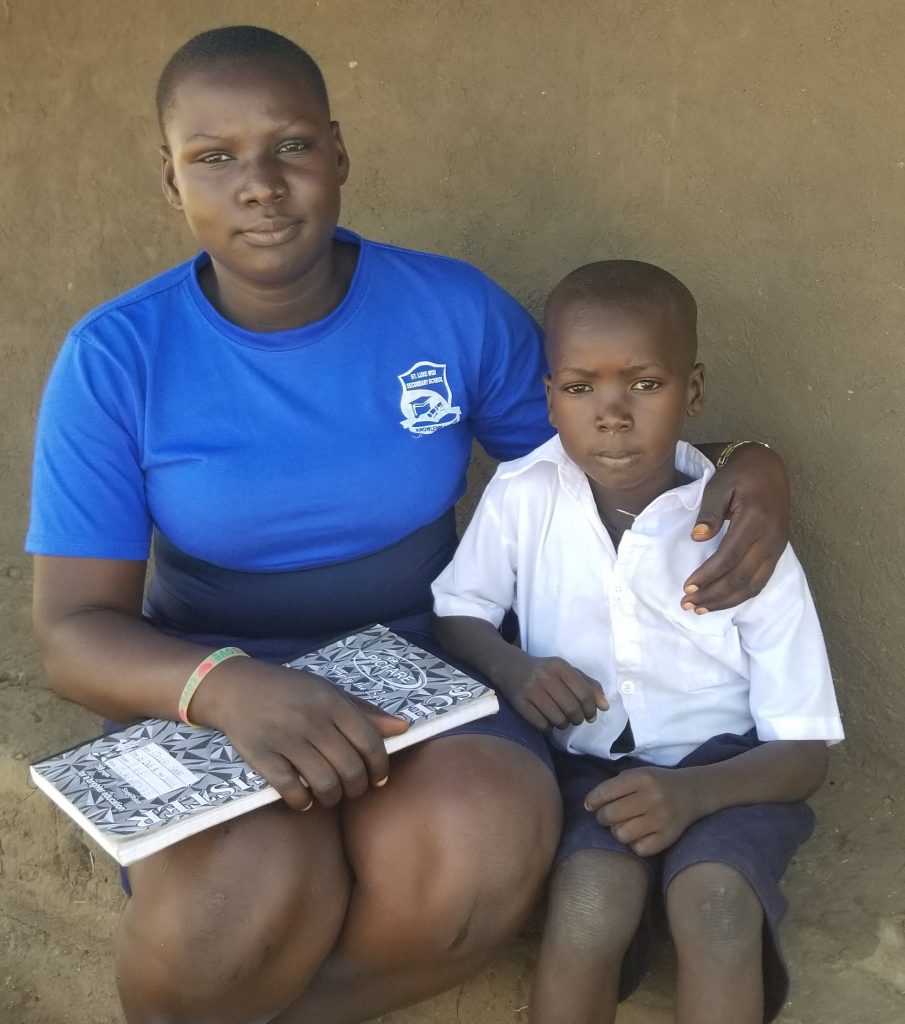Cash for education programme keeps Uganda refugees in school
Stella was forced to abandon her education when she became a refugee. With FCA’s support, she’s back in the classroom and supporting her siblings’ education as well.
STELLA SIINA (23) arrived in Uganda from South Sudan in 2018 with her baby girl.
“I left South Sudan before completing my primary education. When I settled in Uganda, my wish was to go back to school and complete my education. I enrolled St Mary’s Ocea Primary School because it was a non-fee-paying school. After completing primary level seven, I was unable to join secondary school because I didn’t have the funds to support my education, and there was no school that provided free secondary education. The little money I was making went towards supporting my baby.” says Stella, whose daughter is now five years old.
Settling in Rhino Camp in the Terego district, she never gave up her dream of going back to school.
“One day as I attended a community awareness session, I heard about the Finn Church Aid cash assistance program for vulnerable school dropouts. I enrolled and was lucky enough to be registered to be part of the program,” she says.

Stella was supported with cash to support her education and was able to enroll in school and purchase all the equipment she needed. She also used part of the money to support her brother and child to enroll in school.
Prices prevent school enrollment
There are thousands of school-age refugee children and adolescents in Uganda, but few of them are enrolled in school. High costs prevent many students from receiving an education.
The Innovative and InClusive accelerated eDucation programmE (INCLUDE) is a project for refugee and host community children. Funded by EU Civil Protection and Humanitarian Aid (ECHO), it works to overcome financial barriers to education by providing refugee households with cash assistance for education and scholastics. The project is implemented in a consortium of five partners in five refugee-hosting districts of Kyegegwa, Kikuube, Isingiro (South Western Uganda), Terego and Madi Okollo (West Nile).
“FCA recognises quality education as a right of every child, but the realisation of this right is most challenging for refugees. Prioritising refugee education yields several benefits in terms of improved well-being and resilience at the individual, community, school, and education sector levels. Therefore, it is a vehicle for protection and societal transformation.” says Wycliffe Nsheka, Country Director FCA Uganda.
“Each child receives cash prior to the start of each school term, given to the family head. The amount received by each child varies from term to term, geographic location, and level of education,” Wycliffe adds.
Selection Criteria
“Priority is given to those facing multiple vulnerabilities, such as teenage mothers, children engaged in child labour, child-headed households and children with disabilities among others,” says Filbert Idha, FCA Uganda’s Education Technical Lead.
“These children must also be found in households assessed to be socio-economically vulnerable based on several criteria. For example: those with large number of of persons who live within the household; many out of school children; lacking gardens for growing crops; no alternative source of income; poor condition of housing or shelter; or sick family members not receiving medical attention due to lack of money,” Filbert adds.
“We talk to the beneficiaries about the purpose of the cash to meet the educational needs of the targeted children in their households. However, the cash transfers remain unconditional and not restricted. This means that they are free to prioritise the needs in the household. As such, this flexibility allowed some households to prioritise treatment of sick children before they are enrolled in school. There has been more benefit in this flexibility than would be if they were restricted,” Wycliffe explains.
Eighty five per cent of formerly out of school refugee children and adolescents supported with cash have enrolled back to school.
Text: Linda Kabuzire